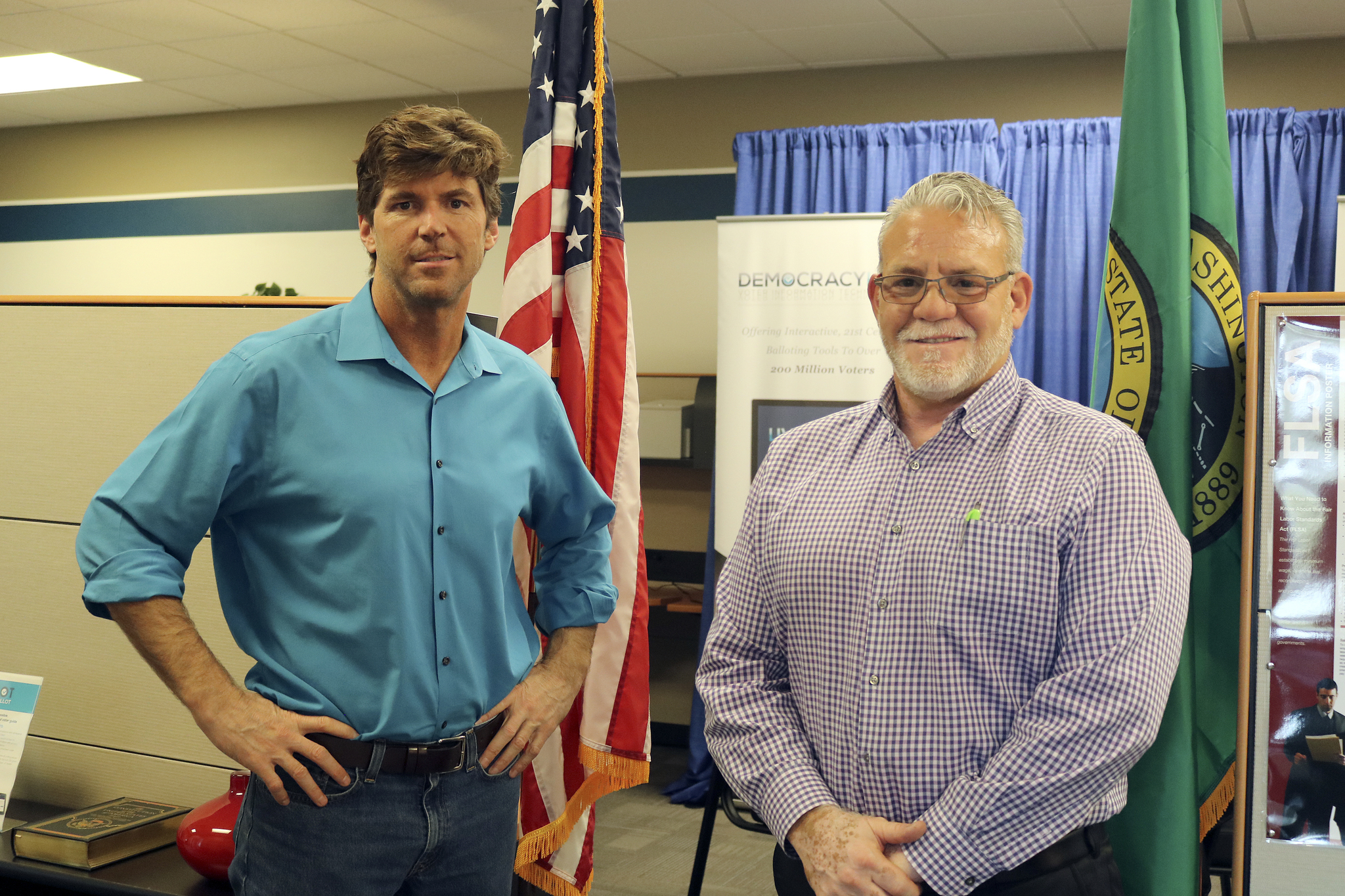In order to help the millions of U.S. voters who face challenges due to blindness, illiteracy or other disability, Charlie Kinnune, Mount Si High School’s head football coach, has joined Democracy Live as the outreach director.
Democracy Live, a Snoqualmie-based elections administration and voting technology company, is working on providing the tools to better inform all voters in today’s digital age and empowering voters whose disabilities make voting a challenge.
They developed LiveBallot, a free web ballot tool that collects information about candidates such as their endorsements and funding sources, and is compatible with screen reader technology for voters with disabilities. When a user enters his or her location, LiveBallot will bring up all the information on the upcoming ballot, including candidates and ballot measures, and allows the user to create a sample ballot to refer to when voting.
Among the sources of data collected are government Web pages that explain the ballot measures in detail, as well as reports on the initiatives or candidates from various news sources.
Kinnune explained the challenges many disabled voters face when trying to make informed decisions on the multitude of candidates and ballot measures each election. LiveBallot allows screen reader technology to work on voting ballots which are usually sent by PDF, a format that screen readers have trouble with.
“Probably 95 percent of the counties in our country put out a PDF that cannot be read by screen readers,” Kinnune said. “That got me interested because it’s disenfranchising a whole bunch of voters, 30 million voters. Information is important and our state does a decent job getting information out to its voters, but not all states are like that.”
Kinnune works with educational outreach consultants, many of whom are blind and are users of screen reader technology themselves, to get feedback on LiveBallot.
“That’s been my job, to work with these, what we call EOCs,” Kinnune said. “They consult with us, they’ve tested our equipment, they like our audio sample ballot and believe that their communities would benefit greatly from it.”
Bryan Finney, CEO and founder of Democracy Live, said that through collaboration with the University of Washington in creating a video voters guide, they discovered that providing audio really helped people with disabilities.
“A representative of the disability community said ‘this video is great, it allows us to hear it,’” Finney said. “That’s when they told us ‘with audio you can enfranchise the 35 million blind voters in this country who can’t see the ballot.’”
Democracy Live has also built its screen reader-friendly service into another project, LiveBallot Tablet, which is intended to replace polling stations with the lightweight tablets that have audio systems to help blind or disabled voters through the process of actually voting.
The Live Ballot Tablet is connected to a printer that prints the voter’s ballot to be taken by the county elections office and tabulated. Finney said the tablet was reviewed federally and by the state of Ohio and approved for use in the election.
“[LiveBallot Tablet] goes in the polling places. Outside of Washington State and Oregon, everyone else votes in the polls,” Finney said.
“What we are doing is deploying that into voting locations to get rid of these big machines that they have. We can swap out that 80-pound machine with a four-pound little tablet.”
Democracy Live will be putting its tablet voting system into use for the first time ever during this election in Mahoning County, Ohio.
County officials will be able to take the LiveBallot Tablets to hospitals, the elderly, and people with disabilities whio can’t make it out to the polls, Finney said.
“We anticipate that Mahoning will just be the first of potentially thousands of localities to use this type of technology as the next generation voting system,” he said.


